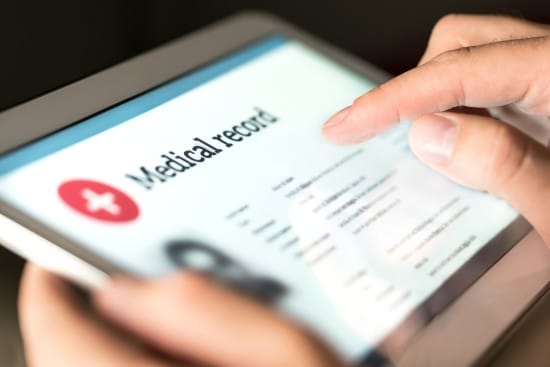Did you know that healthcare data breaches cost US industries $6.2 billion per year? With such a high cost, it’s more critical than ever to ensure that your holistic practice is taking the best steps possible to avoid a breach and safeguard your patients’ information.
One critical method for ensuring the privacy and safety of your patient’s sensitive information is to maintain compliance with the HITECH Act, which streamlines operations and keeps your holistic practice secure.
What Is the HITECH Act?
The Health Information Technology for Economic and Clinical Health Act (HITECH Act) was signed into law as part of the American Recovery and Reinvestment Act (ARRA) in 2009 with the purpose of encouraging adoption and “meaningful use” of technology in healthcare environments. A core component of this Act’s intention is to promote the use of electronic health record systems, which improves quality, communication, and protection for the patient’s sensitive information.
In this context, “meaningful use” is critical for this Act. The federal government wasn’t just trying to get more computers and electronic devices in healthcare offices for no reason—it was to encourage the adoption of technology with the purpose of leveraging these resources to achieve five goals:
- Improve quality, safety, and efficiency
- Engage patients in their care
- Increase coordination of care
- Improve the health status of the population
- Ensure privacy and security
These five goals are cornerstones of healthcare legislation like the HITECH Act, which promises to streamline operations and protect sensitive patient information.

Why HITECH Compliance Is Important for Your Holistic Practice
HITECH compliance isn’t the same as HIPAA compliance; the two are separate laws that complement each other well and work towards the same goal of protecting patient information but compliance with both Acts is important for your holistic practice.
Maintaining compliance with HITECH ensures that your holistic practice is able to access appropriate patient records, share patient information with pertinent parties as needed to improve collaborative care and that your holistic practice is taking steps to protect against cybersecurity threats to sensitive patient information.
Utilizing an electronic health records system and other relevant types of healthcare technology promotes what is called “data interoperability”, which essentially means that communication is effectively and securely shared, stored, and managed.
The benefits of data interoperability include:
- Two-way communication between healthcare providers, holistic practices, state public health agencies, etc.
- Standardized means of sharing data so that information exchanged can be readily interpreted and understood
- Overall efficiency across the healthcare industry
HITECH Compliance + Your Holistic Practice: Top Essentials to Know
Let’s review a few essential things to know when it comes to HITECH compliance and your holistic practice:
3 Principles to Achieve and Maintain Compliance
HITECH compliance starts with a few foundational steps and principles under which to operate in your holistic practice:
- Train your employees and confirm that your healthcare partners are knowledgeable of HITECH requirements to ensure that your practice is comprehensively compliant with meaningful use of electronic health records systems and patient privacy rules
- Implement an information security program that guarantees your patient data is private and protected from unauthorized access, storage, handling, etc. Make sure that your staff routinely refresh their knowledge of HITECH and HIPAA compliance
- Facilitate and encourage good cybersecurity practices like strong passwords, frequently updating passwords, restricting access to former employees, etc. so that your holistic practice is taking steps to avoid being vulnerable to data breaches
6 Components of the HITECH Act
The HITECH Act is comprised of six components:
- Meaningful Use program: Establishes the goals of implementing technology in a variety of manners within the healthcare field
- Business associate HIPAA compliance: This addressed a loophole in HIPAA legislation that was exploited by Covered Entities claiming they didn’t know that a Business Associate wasn’t compliant; with HITECH, more stringent reporting requirements were outlined
- Breach notification rule: Patients whose information was accessed or stolen in a cybersecurity breach must be notified within 60 days
- Willful neglect and auditing: Under the HITECH legislation, audits for HIPAA or HITECH violations could now result in a tiered system of fines depending on the findings of the audits
- HIPAA compliance updates: Once again fortifying HIPAA legislation, this component of the HITECH Act increased potential fines for violations and tightened up restrictions
- Access to electronic health records: With HIPAA, patients were given rights to obtain a copy of their records in physical form; with HITECH, patients were given rights to obtain an electronic copy of their records
Each one of these components plays a vital role in HITECH legislation and its importance to the progression of patient protection.
A Medical Billing Firm Can Help Streamline Your Holistic Practice!
When you’re so entrenched in the medical billing and coding process, facing claim rejections due to inaccuracies, and constantly trying to stay up to date on insurance or Medicare regulations, it can be too much to try and stay current on important legislation that impacts your holistic practice and your patients.
Partnering with a medical billing firm can tremendously help streamline your holistic practice by confidently and competently handling this important component of your holistic practice’s revenue cycle! Consider outsourcing this part of your practice’s operations so that you and your team can address other vital parts of your practice.
Holistic Billing Services has decades of experience and expertise in your holistic practice’s specialty. We’re eager to help you streamline your operations and boost your revenue cycle while you deliver great care to your patients.

